Why We All Need To Be Educated About Holocaust
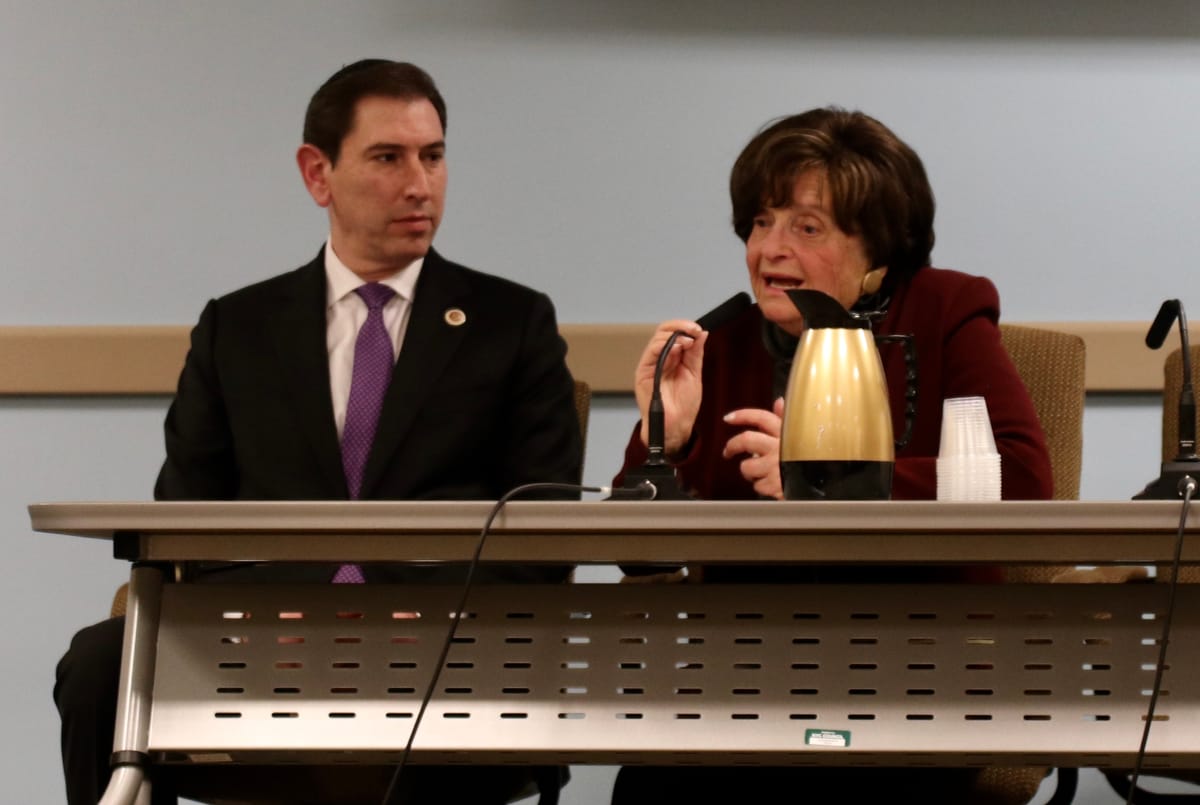
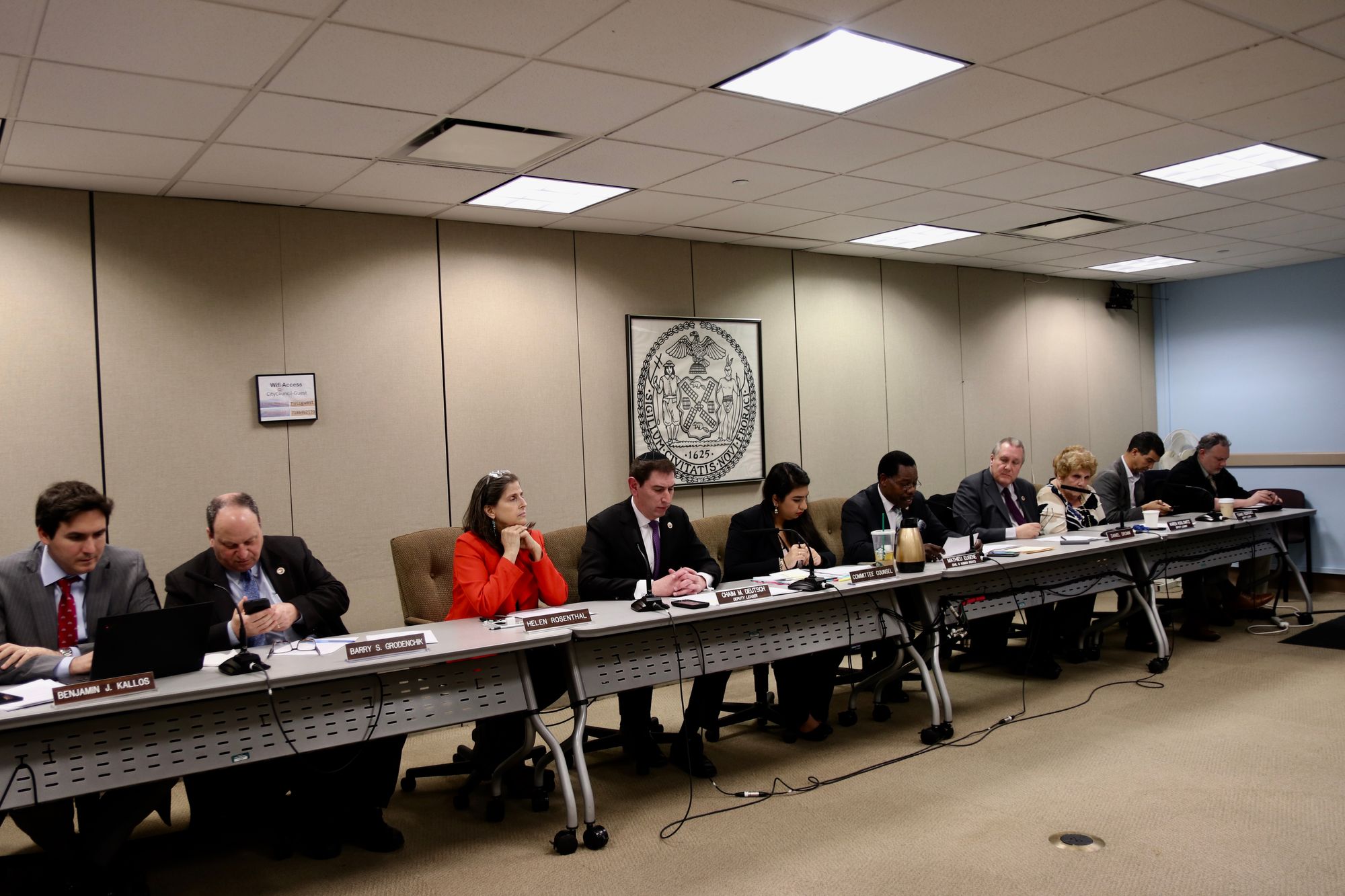
MANHATTAN – It was a packed room yesterday on the 16th floor of 250 Broadway when the Committee on Civil and Human Rights unanimously voted for a bill to officially recognize Holocaust Remembrance Day in NYC on January 27 and declare the week after as Holocaust Education Week.
Resolution 673-B was proposed by Brooklyn Council Member Chaim Deutsch, with several co-sponsors including Council Members Rafael Espinal, Brad Lander, Ydanis Rodríguez, Benjamin Kallos, Helen Rosenthal, Costa Constantinides, Daniel Dromm, Ritchie Torres, Paul Vallone, Fernando Cabrera, Barry Grodenchik, Karen Koslowitz, and Vanessa Gibson.
Holocaust was a mass genocide during World War II when 6 million Jewish people (and others including disabled people, LGBTQ population, Jehovah’s Witnesses and more) were murdered by Nazi Germany for being who they are. The genocide was led by Adolf Hitler who wanted to desperately wipe out an entire religion. These people were taken to death camps, where they were put into gas chambers and killed. The largest of the camps was Auschwitz.
On November 1, 2005, the United Nations General Assembly adopted a resolution to designate January 27 as International Day of Commemoration to remember the 6 million victims of the Holocaust. Resolution 673-B would officially designate that day as Holocaust Remembrance Day in NYC.
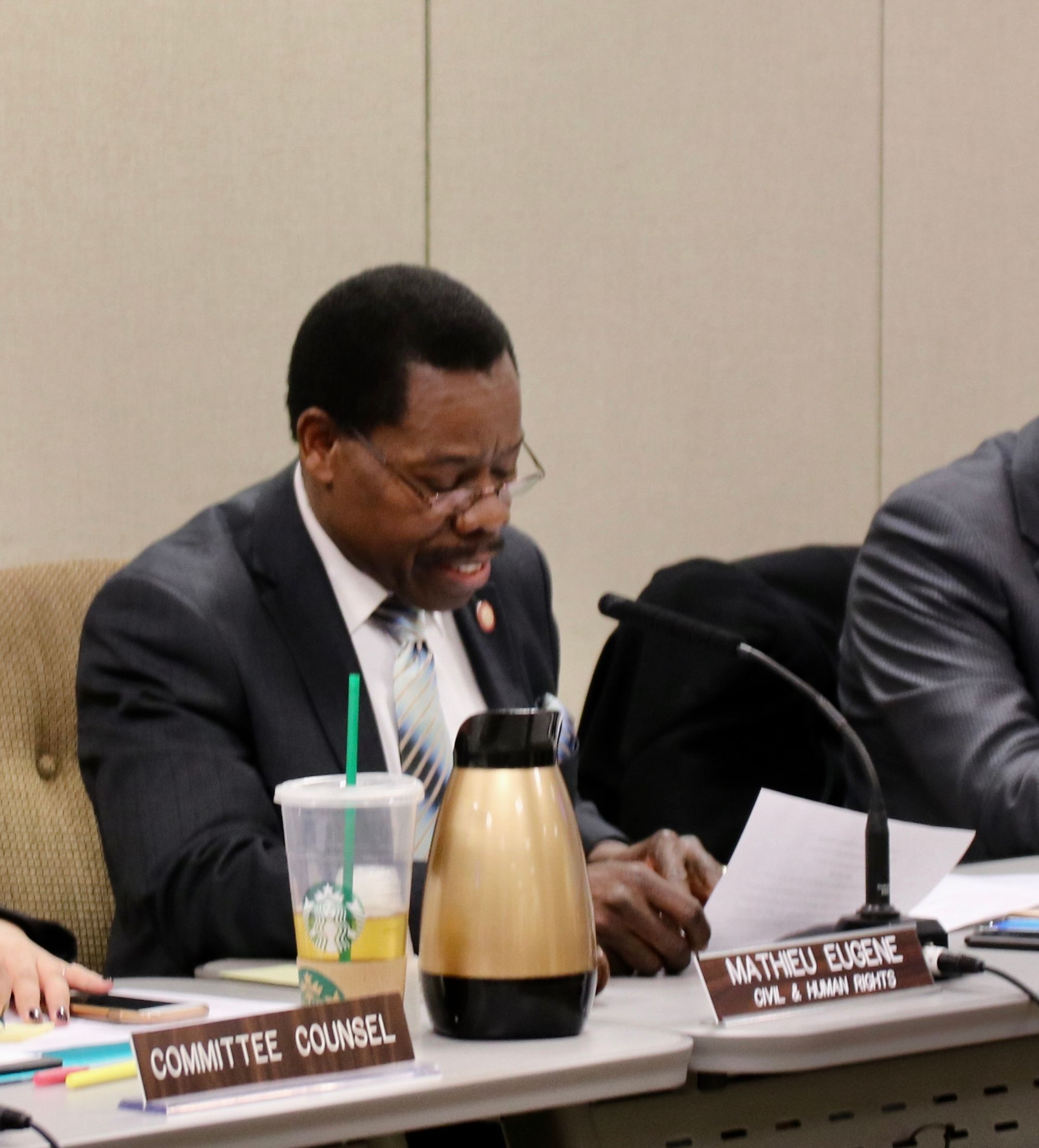
“In spite of clear evidence of Nazi forced labor camps, prisons, and death camps, of which there were nearly 40,000 across Germany and its occupied territories, there are still people who are ignorant or willfully deny the facts of the Holocaust,” Council Member Mathieu Eugene, the chair of the Committee said.
A study by the Conference on Jewish Material Claims Against Germany found that even though there were 40,000 death camps during the Holocaust, 41 percent of American millennials cannot name a single one. There were over 6 million people who were murdered, yet 41 percent of millennials believe the number is two million or less. And 22 percent of million believe the Holocaust never even happened.
Deutsch wants to change that number.
“We need to make sure that we educate our young adults so future generations could remember what atrocities the millions that were murdered in the Holocaust went through,” he said. “Growing up as the son of Holocaust survivors, it was ingrained in my identity that my parents had lived through unimaginable horrors… Knowledge of what my parents went through is present on my mind each and every day.”
“If we want to equip the next generation with the tools they need to build a peaceful future, we need to educate them about the consequences of prejudice and mistreating others.”
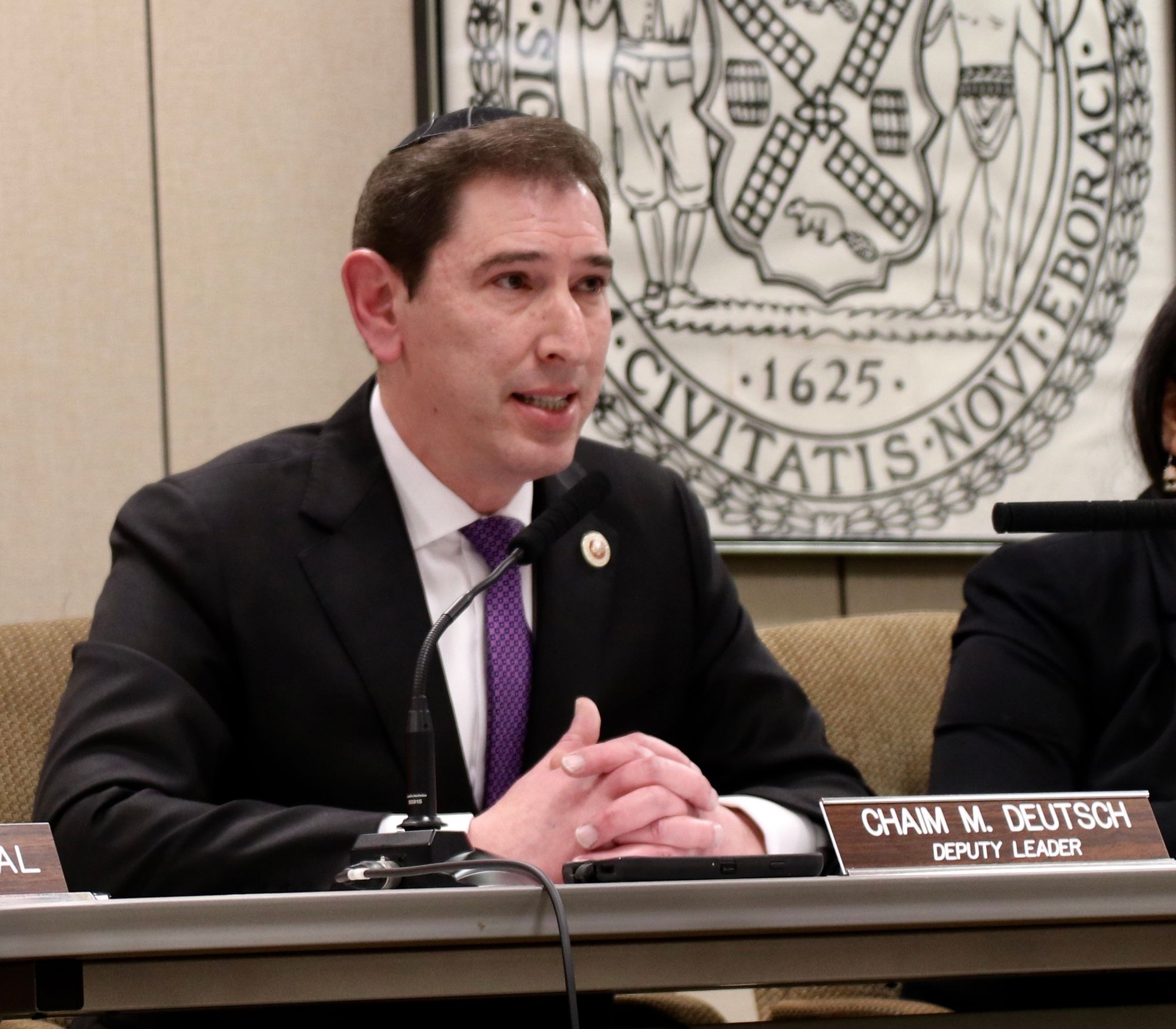
Though nothing has been confirmed yet and details were not provided, Deutsch and his colleagues will be going to different schools for the week of January 27 to speak and teach students about the Holocaust. Deutsch will also be showing films throughout his district to educate the youngsters.
According to Deutsch, it is not just the responsibility of Jewish people to preserve the memory of the Holocaust. In fact, “it is the responsibility of every single person to do their part and bring awareness,” he said.
He said a sixth-grade teacher he knows once told him that when she brought up the Holocaust in the classroom, “several students asked to leave because they were afraid the lesson would be scary.”
“To that I say, yes it is scary. What happened was scary. And if we forget, that would be even scarier.”
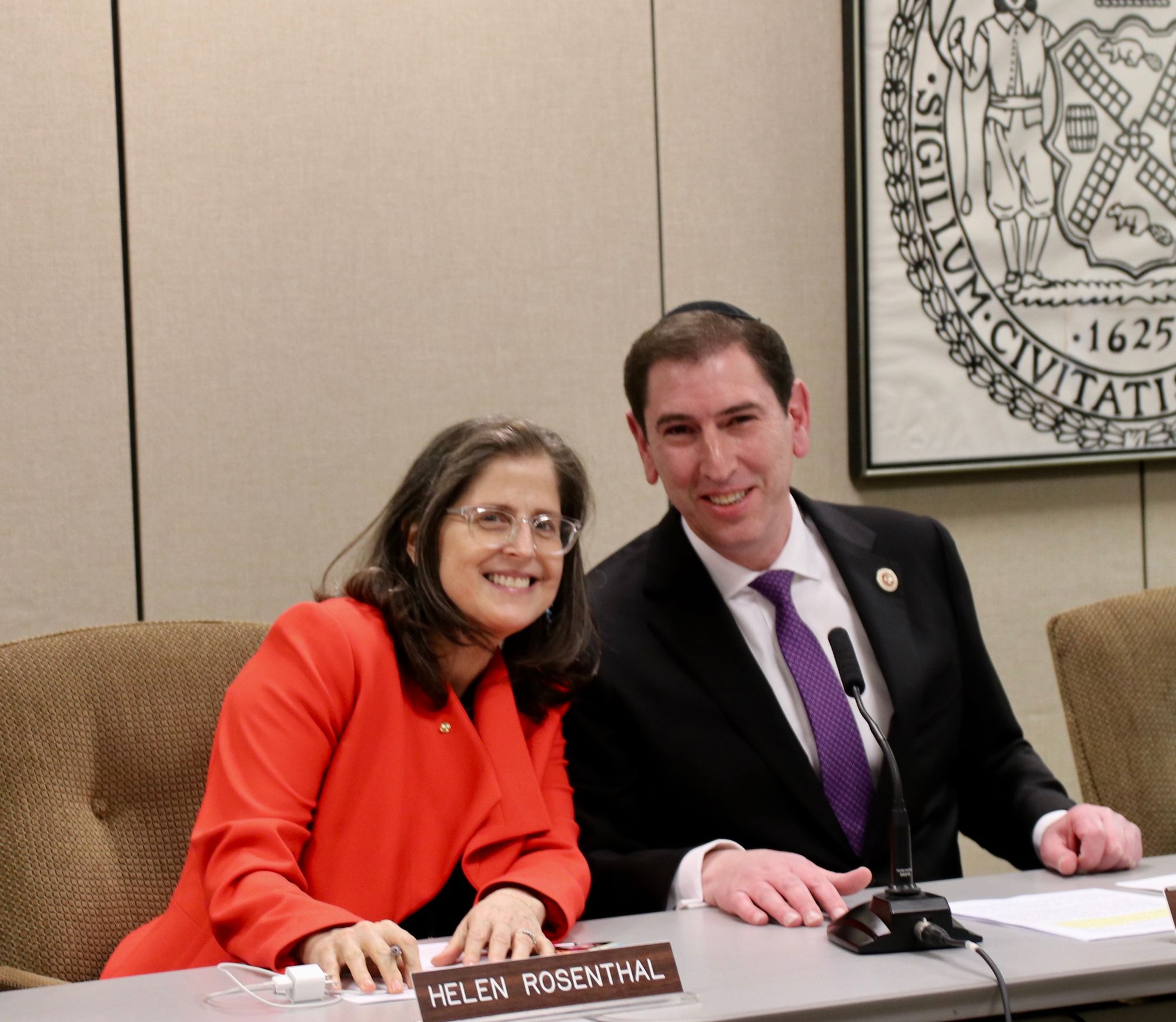
Another reason why this bill is so important is the fact that the number of hate crimes has been rising over the last few years by double digits. The deadliest act took place on October 27 when 11 Jewish people were shot dead in the Tree of Life Synagogue in Pittsburgh. The New York Times reports that anti-Semitic crimes rose by 22 percent in NYC last year. Brooklyn isn’t immune. Just last week, a series of anti-Semitic messages written on United States Postal Service mailing labels were discovered posted throughout Greenpoint.
“It’s important for us to educate and let our young adults know that when a swastika is scrolled, what the meaning of the swastika is; how it impacts a person, how it impacts a Holocaust survivor, and how it impacts an entire community,” Deutsch said.
It was also an emotional moment for Barry Grodenchik who spoke about forgiving and forgetting.
“I am here today to remember six million of my brothers and sisters, including my entire family who was murdered in the Holocaust,” he said. “I am here to be their voice. I am here to be a voice against this monstrous evil. I am here to speak for those whose voices were silenced. I’m here to stand up to those who deny the Holocaust. But mostly I am here to say “Never again”.”
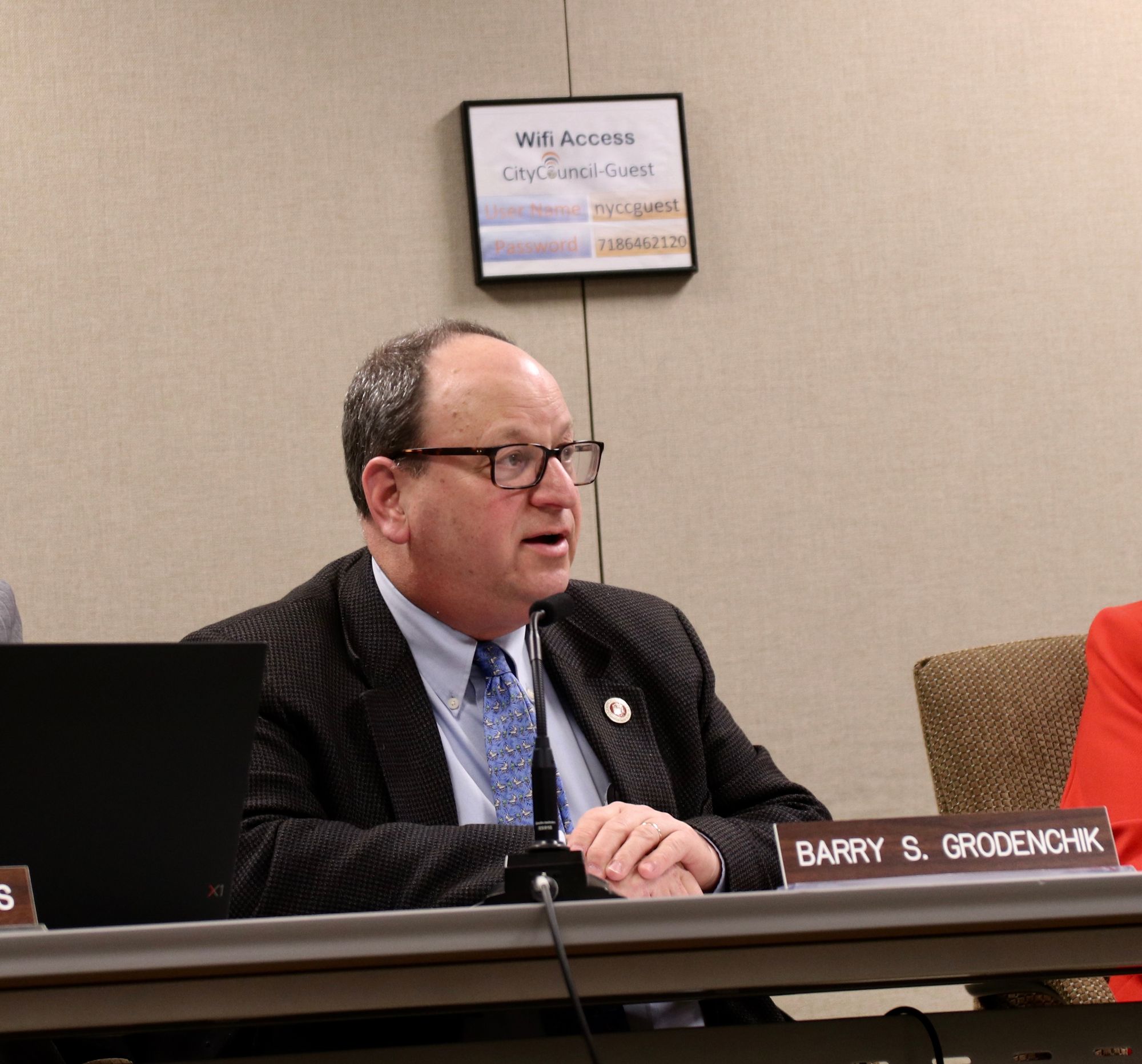
To those who deny the Holocaust, Grodenchik said it is hate that drives people to deny it. There could be no other possible reason, he said. What does he say to those who tell him to forgive and forget? His voice cracked and he held back tears.
“I’m never going to forget. And I don’t have the power to forgive. You want somebody to forgive? Go ask the six million people who were slaughtered, who lie in unmarked graves, who went out in ashes. They can’t forgive and they can’t forget.”
Koskowitz told the story of her mother. In 1923, when her mother was 8-years-old, there was a knock on the door and Koskowitz’s grandfather was taken outside. He was murdered because he was Jewish.
“What my mother went through… lasted her whole life. When my mother would hear thunder, she would take me and my sister into the closet, because to her it was the sound of guns. And she lived with that until the day she died.”
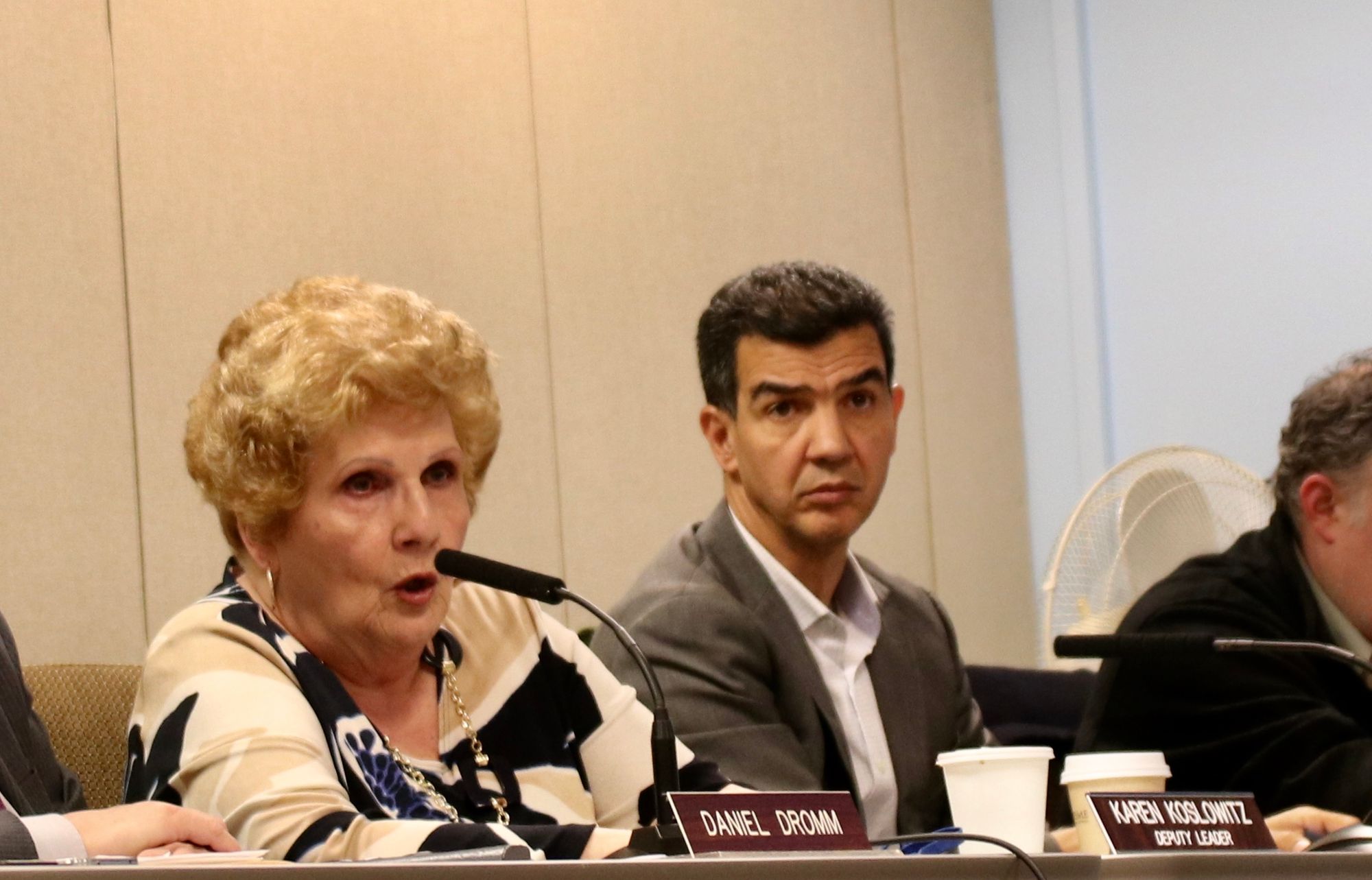
A few weeks ago, Karen Koslowitz said she got an anti-Semitic letter in the mail. In the letter, the person wrote, “Not enough people died in the Holocaust.”
“Six million was not enough for this person,” she said. “What I don’t understand is why. We live in a very diverse city… with all different religions, races, and to this day, why does someone have to be so mean?”
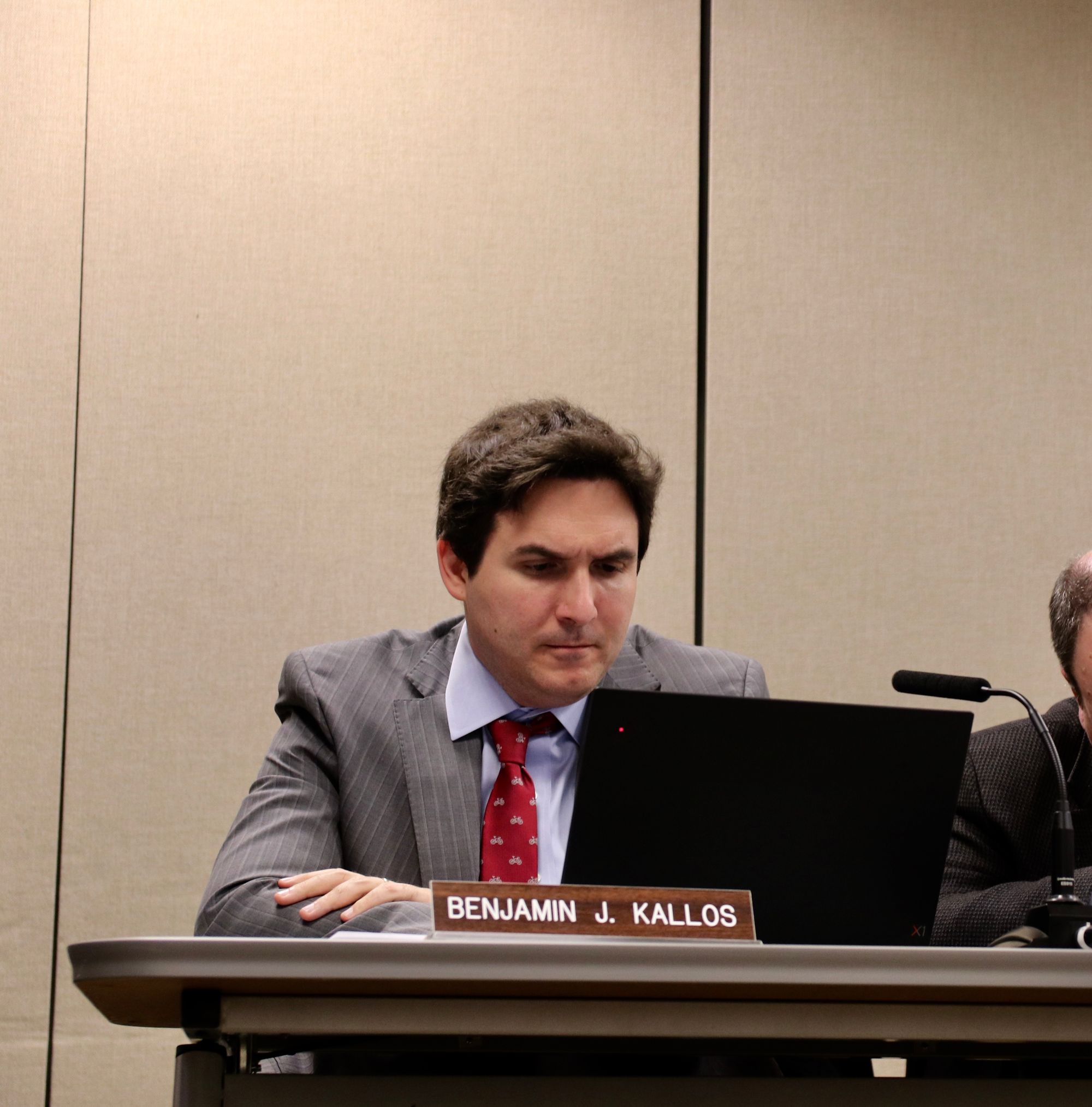
Ben Kallos shared a poem that he remembered reciting when he was younger, written by Pastor Martin Niemöller.
“First they came for the socialists, and I did not speak out — because I was not a socialist.
Then they came for the trade unionists, and I did not speak out — because I was not a trade unionist.
Then they came for the Jews, and I did not speak out — because I was not a Jew.
Then they came for me — and there was no one left to speak for me.”
Ydanis Rodríguez spoke passionately about it being everyone’s responsibility to make sure history is never forgotten.
“When any Jewish person is under attack, all of us are under attack,” he said. “No, I can never say I can understand the pain of Jewish people, but it is my responsibility to stand with them shoulder to shoulder.”

Zahava Ungar is an 88-year-old woman who survived the Holocaust. She couldn’t figure out how to turn on the microphone, so Deutsch turned it on and sat next to Ungar her entire testimony.
“When I was 13-years-old, we were taken, my family and I, to Auschwitz. I had lost my father two years earlier. They took him to war camp and he never returned,” Ungar said. She was liberated on the last day of the war when she was 14-years-old.
“Today I am a mother, a grandmother, a great grandmother, with lots of kids,” she said. “It should not occur again. I said it the moment I entered this country. I’m afraid of it. It could happen in a second. People have to be very vigilant.”
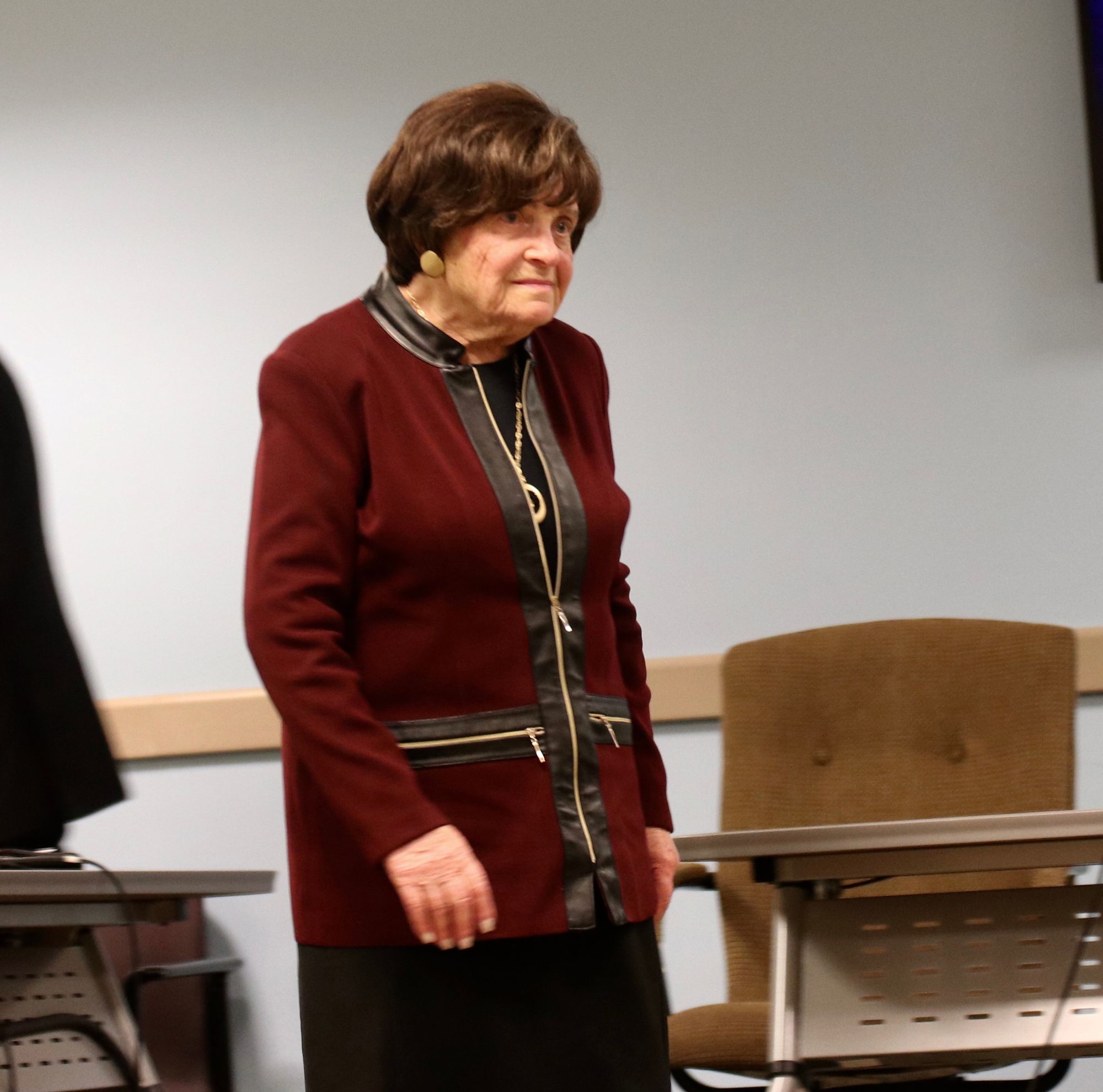
“Those who deny the Holocaust; I lost everyone. I lost my parents, grandparents, aunts, uncles, everybody except my brother. Let them try to tell it to me that [the Holocaust] didn’t exist.”
The Resolution will be voted on by the full Council at the Stated meeting on January 24. Deutsch said it was a monumental day and he looks forward to passing it in the City Council.
“I’ve never felt safer in my life being here in the building with Holocaust survivors who are so blessed for not only what they went through, but for being here and for repeating and telling the story which takes a lot of courage,” he said. “We must always remember to never forget.”




